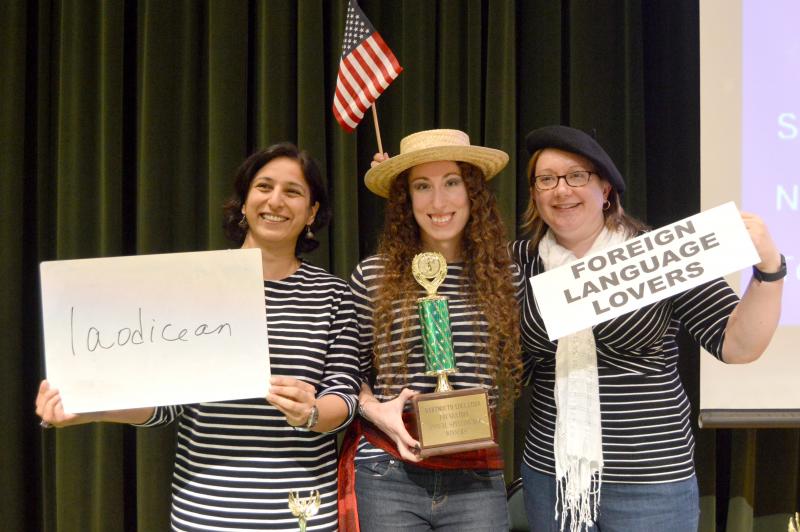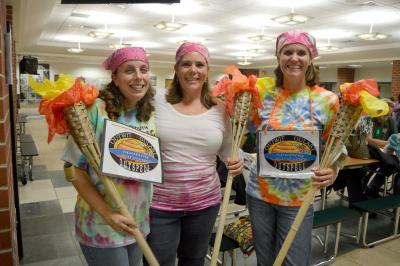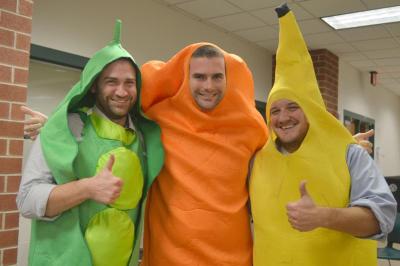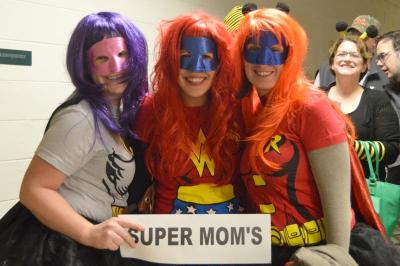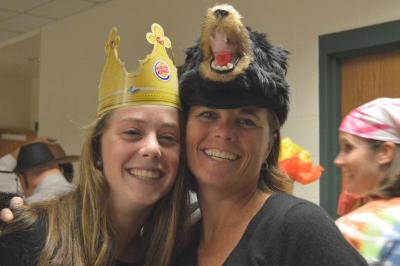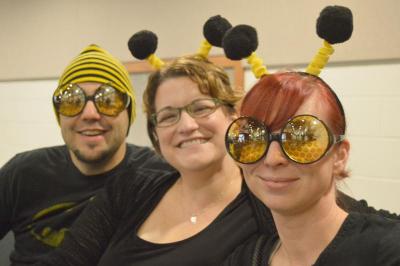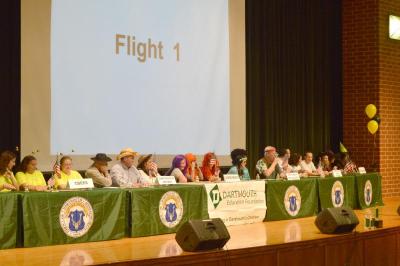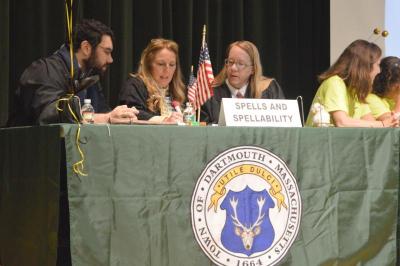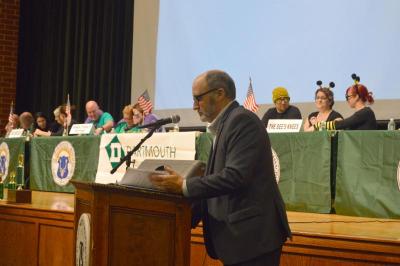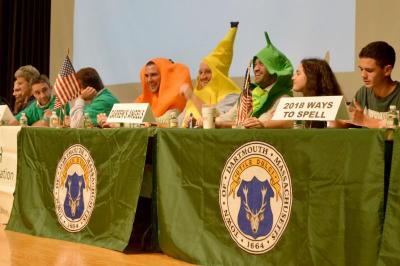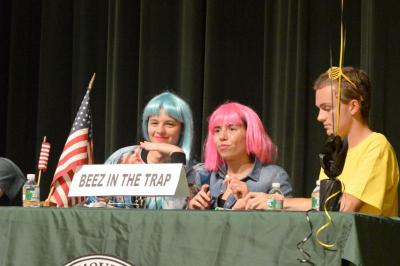Spelling bee funds education, enhances vernacular
Residents gathered at Dartmouth High School this week to ask the tough questions: Are there two M’s in recommend? How many R’s are in occurrence? What does borborygmus even mean?
The fifth annual spelling bee is where all these questions and more were answered. Hosted by the Dartmouth Education Foundation, the event drew 42 teams, each vying to prove they could spell psoriasis, conscientious and consanguinity – without any assistance from an autocorrect feature.
Founded by parents in 2007, the Dartmouth Education Foundation aims to bolster education programming outside of public funding.
The spelling bee has been a huge hit for the foundation, drawing in nearly $100,000 since its inception. All of that money will be returned to the public school system through a grant program.
“The goal is to be able to invest in the Dartmouth public schools,” said Lara Stone, a board member of the Dartmouth Education Foundation. “This event is our largest fundraiser annually. Most of that money goes back into teacher enrichment grants.”
Stone said that all levels of the public school system can apply. Teachers can seek funding for new programs, technology or anything else that the school department wouldn’t be able to fund.
“The grant awards program will be launched right after the first of the year. [Teachers] can apply and find out before the summer that they have money to spend before the new year,” she said.
The event is funded through sponsorship. Local businesses sponsor teams, or, should they choose, they can enter the competition themselves. Because students and nonprofits aren’t required to pay, the sponsors that did not wish to participate can cover the tab.
As for the spelling bee itself, the foundation isn’t trying to overwhelm participants.
“It’s designed to have fun. It’s not designed to be the [spelling bees] on TV where the kids pass out,” said John Beauregard, Chairman of Dartmouth Education Foundation.
Each team is made up of three members, many of whom played in costumes. There are six rounds, or “flights,” where seven teams play simultaneously.
“The teams get to spell two words wrong before they’re eliminated. The winner of each flight gets to come back for the championship,” said Beauregard.
Town Administrator David Cressman and Andy Tomolonis, online editor for The Standard-Times, served as the evening’s spell checkers. Teams were given about 30 seconds to think through the spelling of each word.
“They’re words that you know, but you don’t necessarily know how to spell,” said Beauregard.
This list included gladiolus, sarcophagus and humongous. Some words, like decoupage, drew groans from the audience when host Pete Braley read them. When Braley asked the teams to spell ecclesiasticism, the audience laughed at the their misfortune.
The final round, which pitted the six winners of the previous rounds against one another, featured obscure, polysyllabic monstrosities. The teams were quickly whittled down, with only The Wanna-Bees and The Foreign Language Lovers remaining.
The Foreign Language Lovers eventually bested their opponents on laodicean, which, when used as a noun, refers to a person who is ambivalent toward religion or politics.
The winners, Anupama Arora, Stephanie O’Hara and Rose Facchini, are all professors at UMass Dartmouth. Arora teaches in the English department. O’Hara teaches French and women’s studies. Facchini teaches Italian.
Together, they successfully spelled pusillanimous, encephalon, logorrhea, abstemious and supposititious.
Facchini said the group’s knowledge of various languages worked for and against them.
“I was brought up on British spelling, so I was a little worried,” said Arora.
“We went down on sacrilegious because I was letting French spelling influence me,” said O’Hara.
But how did the trio know how to spell that award-winning word?
“I would like to thank Thomas Hardy, the 19th century British novelist who wrote a novel called ‘A Laodicean.’ I haven’t read it, but that’s how I knew that word,” said O’Hara.



